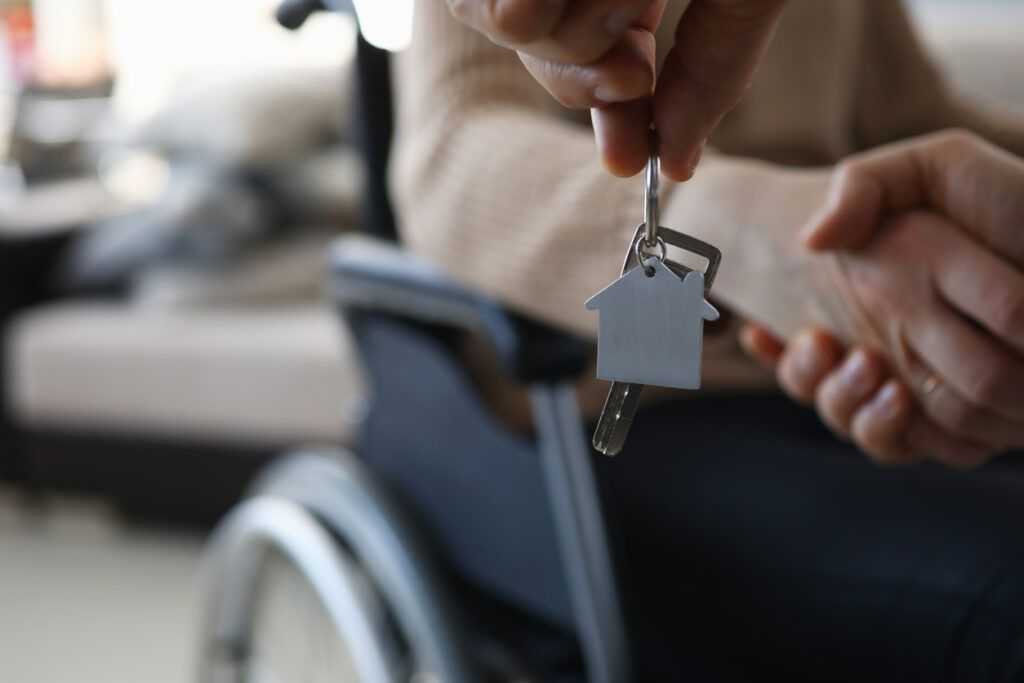When the Equality Act was introduced in 2010, political commentators wrote about a momentous change to British society. “A public-sector duty to close the gap between rich and poor [which] will tackle the class divide in a way that no other policy has”, was how one journalist described it.
Yet, when I gave evidence to the levelling up select committee inquiry into disabled people’s housing, it struck me how little progress has been made.
Fourteen years after Harriet Harman first introduced the Equality Act in the House of Commons, there are now 14 million Disabled people in the UK. We are not a homogenous group, but no matter our backgrounds or circumstances we all have a right to affordable, accessible housing that keeps us warm and safe.
Nonetheless, we have all been consistently failed by the government. The prevailing feeling I pick up throughout my work is that we are trapped in a vicious cycle of housing precarity and inaccessibility.


Of course, our housing crisis has real material costs outside the soft furnishings of Westminster. This is a crisis where Disabled people, on the verge of homelessness, are told their local authority housing waiting list is 100 years; or that their private rent is about to double; or that they should wash themselves in plastic basins instead of showers because their landlord doesn’t want to make simple adaptations to support their washing access needs.
The select committee chair, Clive Betts, asked me: “What are the barriers to people getting access to suitable housing?”
The question was perhaps the easiest to answer of the entire session: the main barrier we experience as Disabled people is government policy.
Who else can be blamed for the failure to end the policy of the right to buy? Which has taken £6.9 billion from stretched council housing budgets in the last decade and, without changes, will remove 60,000 council homes by 2030 — all while over 1 million households are waiting on council housing lists.
Are others more at fault than the government for failing to fund the building of social housing, leaving us with six times more newly homeless families than new social houses in 2023? They have left us stranded, nowhere near the 100,000-a-year target that we need, with record numbers of Disabled people in inaccessible, unsafe, and incredibly costly temporary accommodation.
Perhaps they need to stop listening almost exclusively to developers who even admitted in the following evidence session that the desire for larger profit margins is stopping them from building the homes Disabled people have a right to.
And despite a growing consensus from renters all the way up to mayors across the country, the government is failing to tackle spiralling rents by implementing a rent freeze and giving local authorities the powers they need (as other countries have successfully done) to control record-breaking private rent levels. In total, 20 per cent of Disabled people rent privately, but the government’s wilful ignorance toward affordability has led to a situation where recent ONS findings show that Disabled adults are amongst some of the most likely to find their rent difficult to afford, pushing more and more of us toward homelessness.
Do we need an inquiry to uncover the failure of the government to implement the higher accessibility standards for new builds it first consulted on in 2020? Do we need an inquiry to see why the Renters Reform Bill has been left stagnant as more private renters face homelessness? Can anyone else be blamed for the government’s failure to implement the recommendations of the Grenfell enquiry to bring in Personal Emergency Evacuation Plans, a crucial safety measure first recommended in 2019? Who else can be seen at fault for this negligent attitude toward the Disabled renter’s safety and well-being?
The inquiry evidence began in a week when the government’s inability to tackle the crisis became even clearer. From an appalling new social housing policy universally rejected by Disabled people to quietly dropping a commitment to increase the amount of money that we can use to adapt our homes, the government has instead been tabling actively harmful and dangerous housing policies.
As I walked out of Westminster, I spoke with my fellow participant Jacquel Runnalls, Accessibility and Inclusive Design Lead, Royal College of Occupational Therapist’s Specialist Section-Housing, who gave evidence to a previous inquiry into Older people and housing.
Their summation of the situation was succinct — successfully pinpointing the gap between Disabled people and policy-makers in Westminster: “Sadly there is still a lack of understanding about the need to build and how to design inclusive, accessible homes”.
Politics.co.uk is the UK’s leading digital-only political website, providing comprehensive coverage of UK politics. Subscribe to our daily newsletter here.












